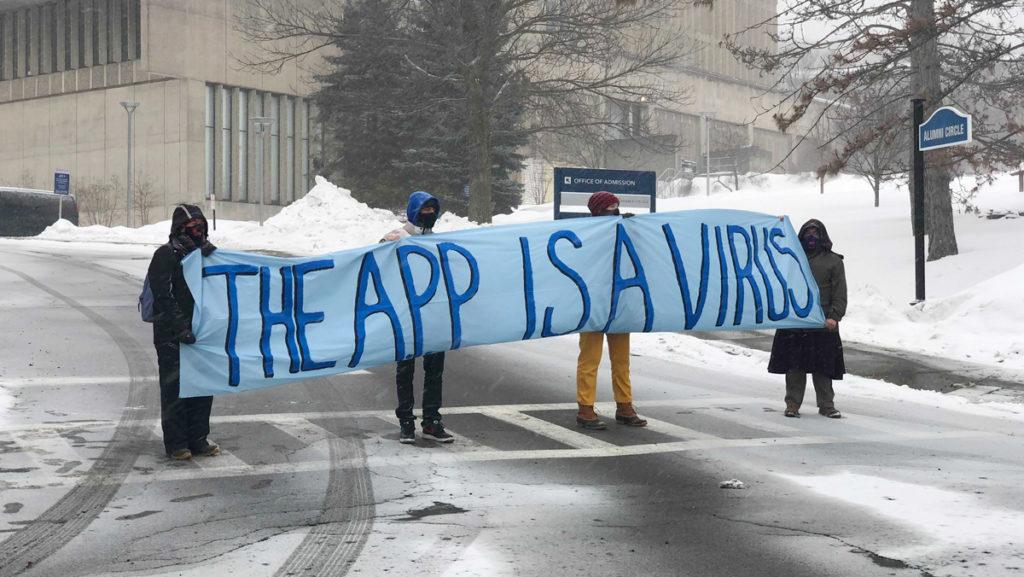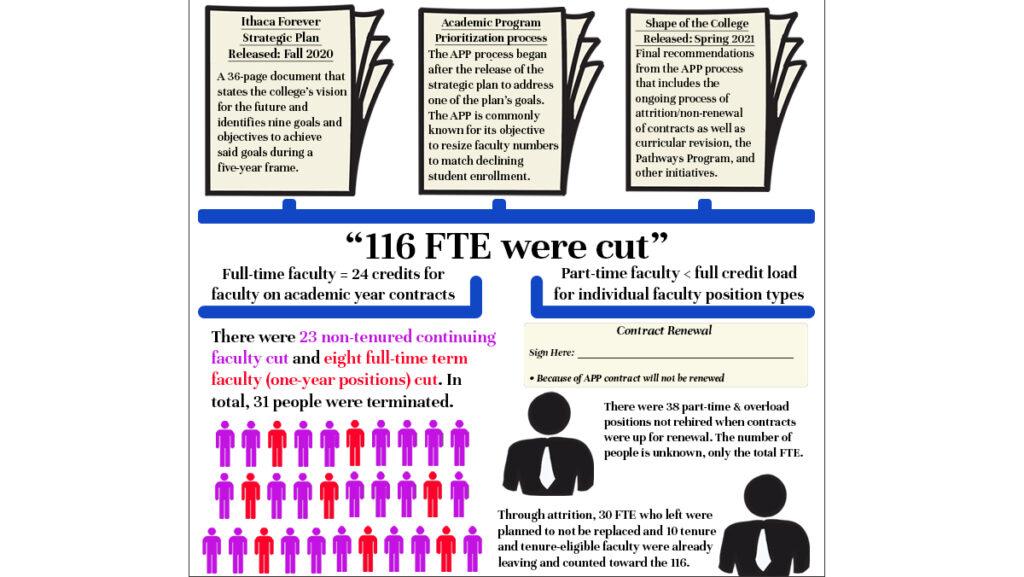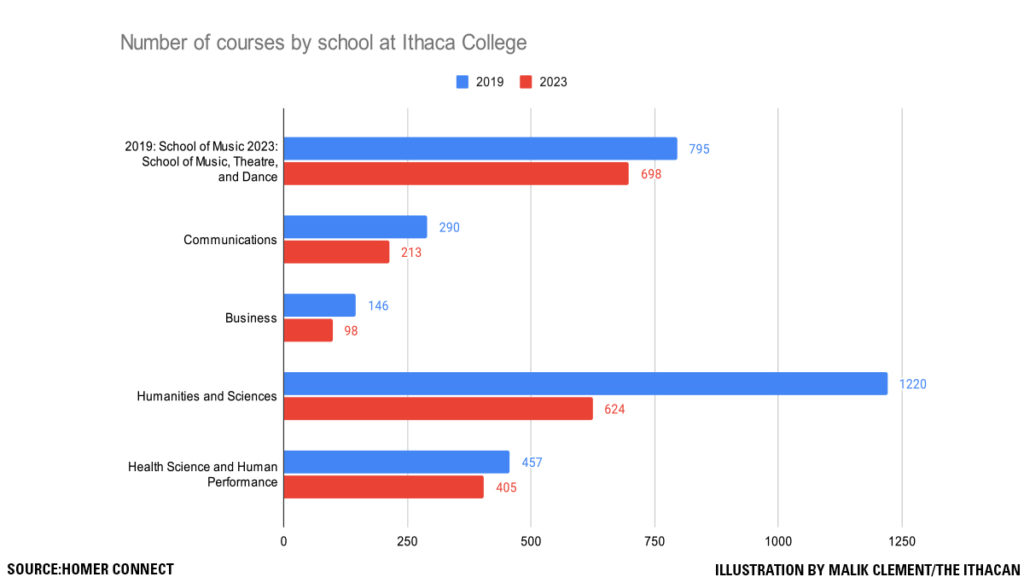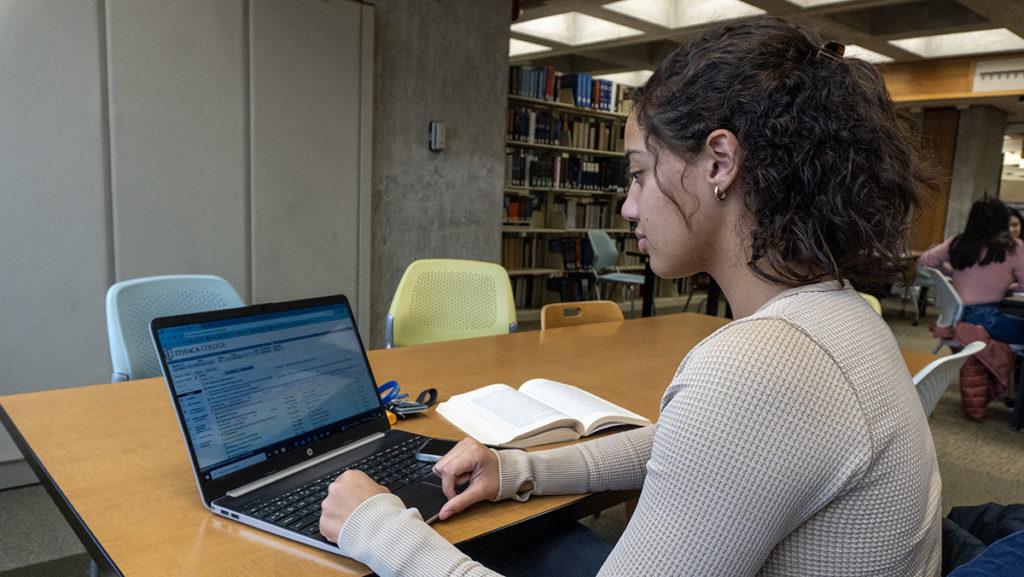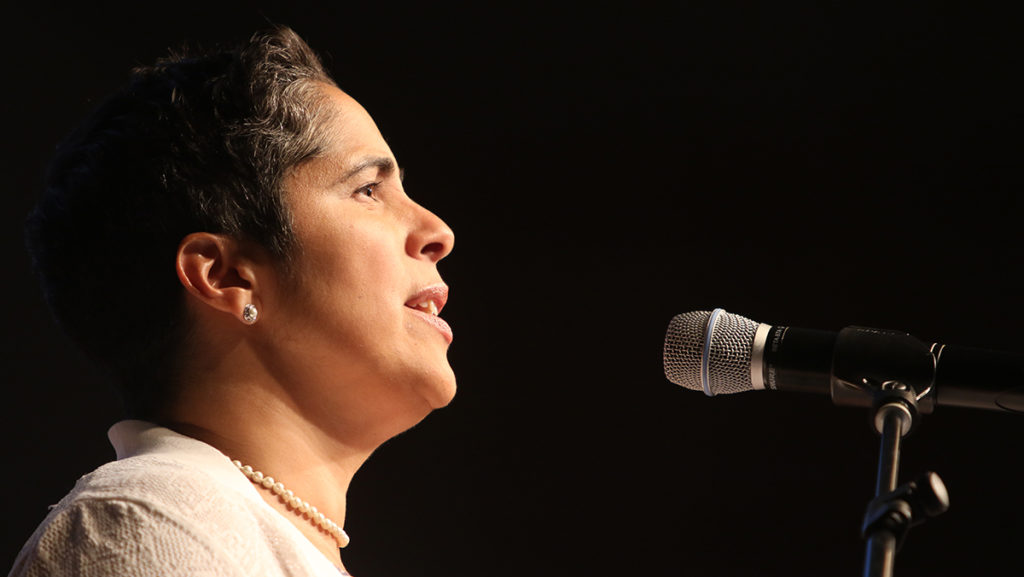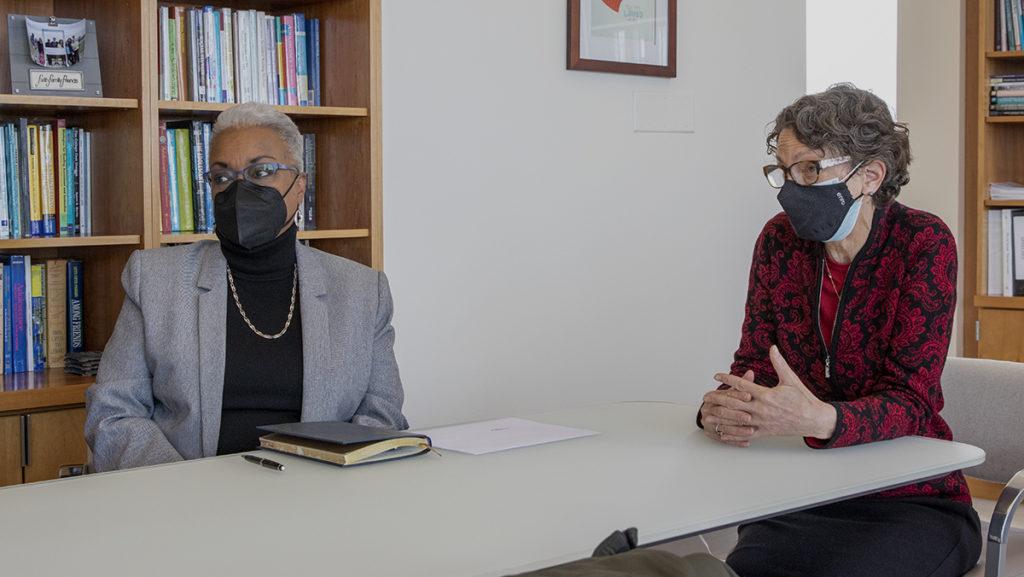For the fifth time in the last three months, students lined the crosswalk by the Peggy Ryan Williams Center (PRW) to protest the Academic Program Prioritization (APP) process. At this demonstration, they held a banner that stated, “The APP is a virus.”
“It’s a virus of its own,” senior Chris Griswold said. “It’s something that’s going to cause detrimental harm to many, many people at this institution and in this town.”
The Open the Books coalition is a group of Ithaca College community members advocating against the proposed program and faculty cuts that are part of the APP. Approximately 12 people attended the protest at 8:30 a.m. Feb 22, four days after the Academic Prioritization Process Implementation Committee (APPIC) released its final recommendations for the cuts. The document recommends the elimination of 116 full-time equivalent faculty positions in addition to 26 departments, majors and programs. President Shirley M. Collado and La Jerne Cornish, provost and senior vice president for academic affairs, will announce their final decision by Feb. 24.
Some protesters taped off two doors at the main entrance to PRW with yellow caution tape and red danger tape. The group also lined up posters outside the doors to PRW that read, “Stop cutting” and “Decisions Made Here May Be Hazardous.” On Dec. 13, members of the coalition hung posters and drew in chalk and permanent markers on the sidewalk surrounding PRW and the building itself, prompting a condemnation of the act from Collado.

The coalition held its first protest against the APP November 2020 and has continued to hold events for the past few months. Before this, the most recent protest was held Feb 19.
Griswold said the coalition is calling for financial transparency because students do not know the administrations’ current salaries nor do they have clarity regarding what endowment money can be spent on.
During the InFinity presentation Feb 22, Bill Guerrero, vice president for finance and administration, said the endowment is approximately $390 million. He also said the college draws approximately $15 million from the endowment into its budget annually. Guerrero has shared this information at the Feb. 9 All-College Gathering and with the Faculty Council. The college has not responded to The Ithacan’s requests to disclose the administration’s current salaries. The information is available in the college’s Form 990s, but the ones for this year are not yet available. The latest salary information available is from the 2018–19 fiscal year.
Griswold also emphasized that the cuts do not solely pertain to the college.
“Austerity politics is something that’s been happening in the United States for decades and especially at higher education institutions,” Griswold said. “We want our institution, who claims they value diversity and equity and inclusion, to be held to a higher standard because they told us they would be held to that higher standard. … They told us that they were an institution that had values, we don’t f—— see any of that.”
Seniors Maria White and Jenny Lema also held up signs at Alumni Circle. Lema said one of her concerns with the APP is faculty of color being fired. She said she and others have reached out to the administration asking if there was any clear indication of what help will be given to the faculty members of color who were recommended to be fired. Lema said that they have not heard back yet.
“As a Latinx person, I can’t find any faculty and professors that I can relate to,” Lema said.
Other students have expressed their concern that the cuts will affect faculty of color disproportionately.
The APPIC has stated that it will not be terminating any tenure or tenure-eligible faculty members. This leaves non-tenure eligible, part-time per-course faculty, adjunct faculty and faculty employed by term appointments to be recommended for termination. This is in alignment with Section 4.9.8 of the Ithaca College Policy Manual.
Nationally, faculty of color tend to hold adjunct positions within colleges. In an opinion piece for Inside Higher Ed, Collado and Cornish stated that more than 70% of the college’s contingent faculty members were white.
Some faculty members who have been notified their positions were recommended for termination have added their names to a list that is circulating on social media. White said she took classes with two of the professors on the list and said the close-knit relationships she and others have with their professors is the true defining point of her education.
“When I think about the most positive aspects of my IC experience, it really comes down to the relationships with the professors and supporting them and showing up for them because they’ve shown up for us,” White said.
Griswold said the coalition will continue to hold events before Collado and Cornish make a decision about the proposal.
“We’re not going to let them forget about us,” Griswold said.


